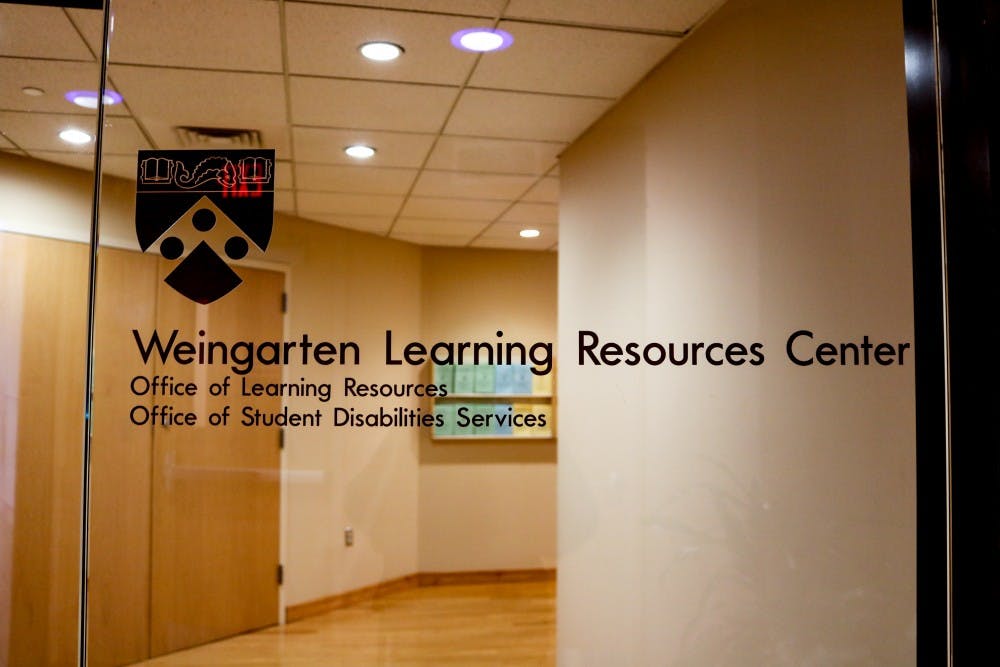When Laronnda Thompson started her Ph.D. in Interdisciplinary Studies and Human Development at Penn, she had already had experience navigating a university with a disability. Thompson was born with osteogenesis imperfecta, or brittle bone disorder, which puts her bones at risk of breaking easily, so she has to move around campus in a wheelchair.
Thompson said she was satisfied with the resources available at Penn for graduate students with disabilities, but for many students navigating campus with a disability, there is always room for improvement. As the Graduate and Professional Student Assembly's Equity and Access Chair, Thompson plans to both expand on previous programs and generate new spaces for students interested in sharing perspectives on disabilities at Penn.
Students with disabilities make up a larger portion of Penn’s student population each year, according to Weingarten Learning Resources Center Executive Director Myrna Cohen. Cohen said this matches national trends, as the number of students who identify as having a disability increases every year.
Students can have a range of disabilities, either temporary or permanent, that include learning, psychological, physical, and sensory, Cohen said. Weingarten, which houses Student Disabilities Services, acts as the centralized resource center for both undergraduate and graduate students with disabilities.
In her position as chair, Thompson plans to build upon projects from previous years, including the Accessibility Mapping Project which uses crowd-sourced data to create a map with helpful accessibility information. She pictures using similar methods to gather subjective accessibility feedback, such as putting tablets in University buildings to make it easier for students to provide accessibility feedback.
Thompson added that her conversations with students have highlighted the need for a space dedicated to connecting students with disabilities and providing resources for students interested in incorporating disability studies into their work. She also sees a need to connect people interested in studying disabilities with mentors and resources in the Penn community.
One way Thompson and the Equity and Access Council plan to support disability studies discussions this semester is through a lecture series.
The Equity and Access Council is now in an “outreach and advocacy” phase to identify people’s needs in order to create a space that is comfortable and serves Penn students' diverse set of interests, Thompson said.
Related:
Haley Pilgrim's GAPSA wants to tackle mental health and sexual harassment reform this year
Last week, Wharton students got their own CAPS clinician. Here's what students think.
“Disability is not necessarily as talked about and when it is talked about it’s still talked about in a very deficit orientation,” Thompson said. “This is just another shade of human life.”
Still, Thompson recognizes that building community can be difficult because not everyone is comfortable publicly identifying as disabled or expressing an interest in disability studies if they are not disabled.
"I think sometimes we can be a country of extremes,” Thompson said. “We discovered that labels are a bad thing, and they can be, but I struggle with understanding the difference between when we say label and identity.”
Access can also mean simplifying the process of identifying resources, Thompson clarified.
“Penn has a bajillion resources,” Thompson said, adding they can be difficult to navigate at times.
“It’s really exciting to see GAPSA and Equity and Access take our conversations around disabilities and disability studies to the next level,” GAPSA President Haley Pilgrim said . “She’s really added to [previous work] hearing from students about what they need and doing her best to implement that.”









